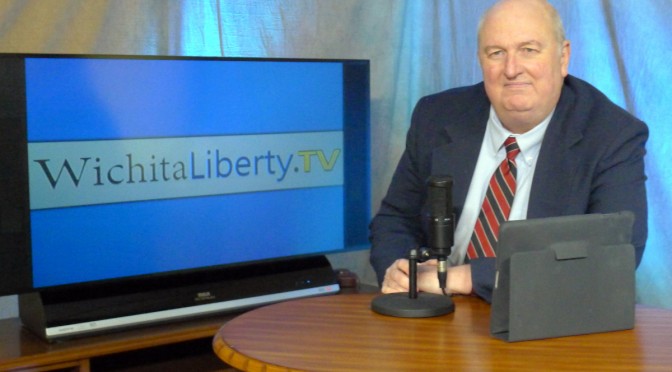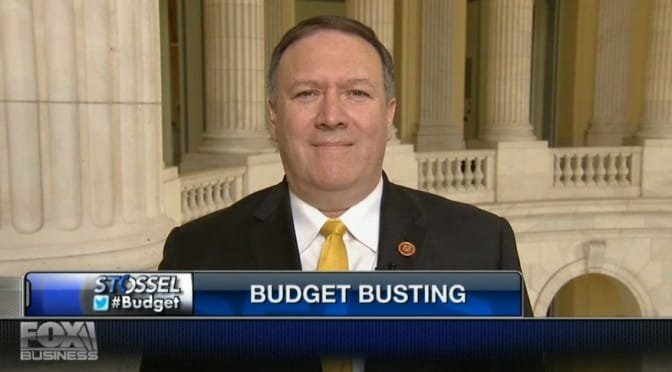Tag: United States Congress
-
Pyle, Kansas Senator, considering Roberts challenge
Could this be an effort by the Pat Roberts campaign to muddy the waters and diminish Milton Wolf’s prospects?
-

Voice for Liberty Radio: U.S. Rep. Mike Pompeo on Benghazi, Ukraine, and Boko Haram and the continuing threat of Islamic terrorism
United States Representative Mike Pompeo of Wichita has been appointed to the Select Committee on the Events Surrounding the 2012 Terrorist Attack in Benghazi. I spoke with him today in his Wichita office on this topic and a few others.
-

WichitaLiberty.TV: Mike Pompeo on Russia, economic development incentives, and House of Cards
In this episode of WichitaLiberty.TV: United States Representative Mike Pompeo talks about Eastern Europe and Russia, economic development and incentives, and the Netflix television series House of Cards.
-

WichitaLiberty.TV: Term limits, initiative, and referendum
A candidate challenging a long-time incumbent for United States Senator from Kansas provides the opportunity to explore the need for term limits, and the related concepts of initiative and referendum.
-

Club for Growth scorecards
I’ve gathered Congressional scorecards from Club for Growth for all years available and present them in an interactive visualization.
-
Harry Reid takes money from companies under investigation for bribery law violations
Senate Majority Leader Harry Reid, D-Nev., has received campaign contributions from people and political action committees linked to multiple companies suspected of violating the Foreign Corrupt Practices Act.
-

Pompeo on Obama budget
Rep. Mike Pompeo appeared on Stossel and told the host that President Obama’s budget will leave the U.S. begging for money down the road.
-
Pompeo responds to Washington’s attacks on Koch Industries
Public officials have a responsibility to uphold the Constitution and use their office to protect the rights of Americans, rather than attack them for their political advocacy, writes U.S. Rep. Mike Pompeo.
-

WichitaLiberty.TV February 16, 2014
The controversy surrounding the residence of a long-time senator from Kansas raises issues of term limits and the ability of citizens to exercise the power of initiative and referendum. Then, the seen and the unseen applied to economic development in Wichita, and why do we rely on certain experts.
-

Voice for Liberty Radio: Mike Pompeo
In this episode of Voice for Liberty Radio: U.S. Representative Mike Pompeo of Kansas spoke at a meeting of the Wichita Pachyderm Club
-
Voice for Liberty Radio: Tim Huelskamp
In this episode of Voice for Liberty Radio: United States Representative Tim Huelskamp recently spoke to the Wichita Pachyderm Club.
-
Voice for Liberty Radio: Milton Wolf
In this episode of Voice for Liberty Radio: Dr. Milton Wolf is a candidate for United States Senate and will face incumbent Pat Roberts in the August primary election. We spoke by telephone on January 23, 2014.